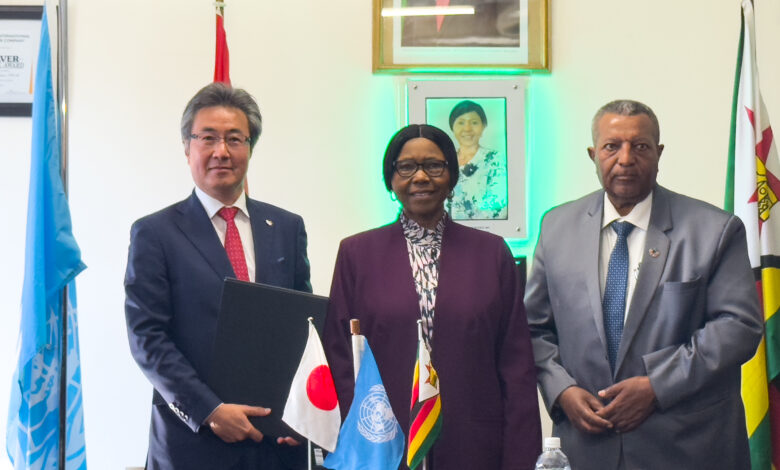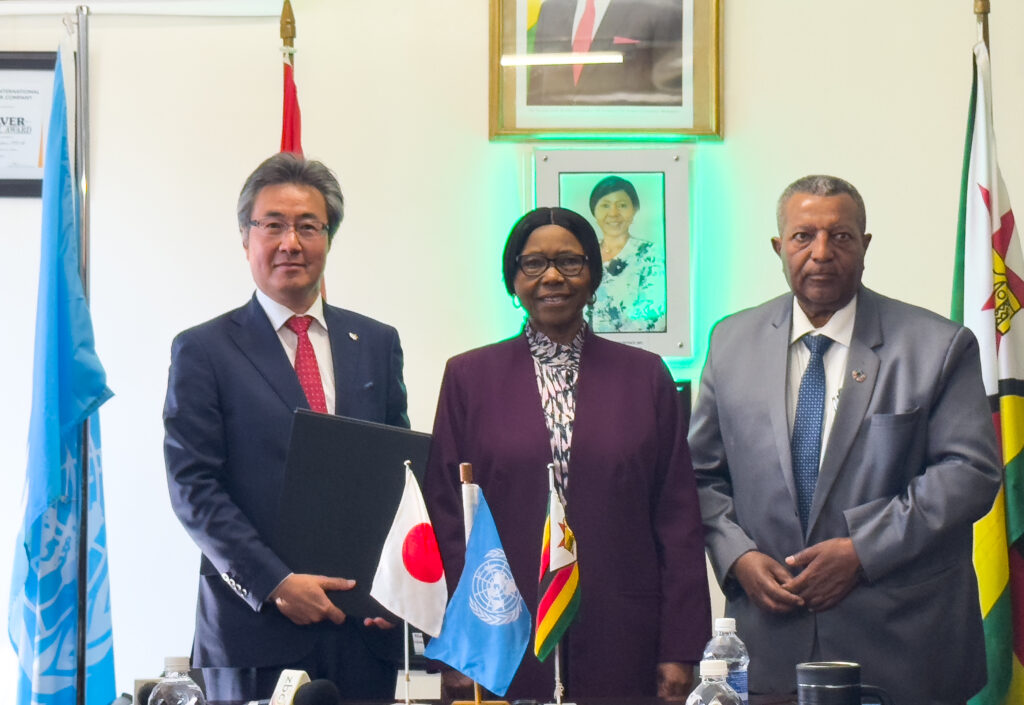Japan, UNDP Partner Zimbabwe To Clear Landmines With US$3.4 Million Project

HARARE, The Government of Japan and the United Nations Development Programme (UNDP) have signed a new US$3.4 million partnership (Japan -US$3 million, UNDP – US$400,000) to accelerate the removal of anti-personnel landmines in Zimbabwe.
The project, ‘Enhancing Resilience of Communities through Mine Clearance and the Improvement of the Agricultural Infrastructure’, will improve the safety and livelihoods of communities in Rushinga and Mudzi Districts along Zimbabwe’s borders, fostering peace and stability in the region.

For over four decades since independence, communities along the border with Mozambique have been unable to return to full normalcy due to the lingering threat of explosive ordnance (EO) from Zimbabwe’s liberation struggle.
This contamination covers approximately 12 km 2 , about 4% of the original coverage of 310 km 2.
The contaminated land is dangerously close to villages, agricultural lands, and water sources, hindering development and posing a constant threat to life.
Ruwa Community In Mourning After Brutal Killing of Businessman Mutangadura
This project directly supports Zimbabwe’s efforts to meet its obligations under the Anti-Personnel Mine Ban Convention (APMBC) and its national development goals.
By clearing landmines, the initiative will release safe land for farming and other economic activities, directly contributing to the resilience and prosperity of these vulnerable communities.
Japan Reaffirms Solidarity With Zimbabwe
Speaking at the signing ceremony, H.E. Mr. Shinichi Yamanaka, Ambassador of Japan to Zimbabwe, emphasised his government’s commitment to creating a safer world.
“Japan is a steadfast partner in promoting peace and human security across the globe and holds the presidency of the Anti-Personnel Mine Ban Convention this year.
“We are proud to support Zimbabwe in its journey to become a landmine-free nation.
“Furthermore, this project contributes to the rehabilitation of mine-cleared land as farmland and to the improvement of the livelihoods of smallholder farmers through the Smallholder Horticulture Empowerment and Promotion (SHEP) Approach.
“This project is about restoring hope and enabling development more than it is about just removing the deadly remnants of war.
“Through this assistance, we reaffirm our friendship and solidarity with the people of Zimbabwe.”
The project takes a comprehensive approach, linking mine action with long-term community development.
Interventions will include explosive ordnance risk education, victim assistance, and strengthening the capacity of national institutions like the Zimbabwe Mine Action Centre (ZIMAC).
Furthermore, it will introduce diversified livelihood opportunities, such as the SHEP Approach, to build economic resilience.
Mr. Lealem Berhanu Dinku, UNDP Deputy Resident Representative in Zimbabwe, highlighted the
Project’s alignment with the principle of leaving no one and no place behind.
“The legacy of conflict has for too long held back the potential of Zimbabwe’s borderlands.
“This vital project, generously funded by the people of Japan, allows us to address the fundamental issue of human security.
“Integrating mine clearance with sustainable development, climate action, and social cohesion creates pathways for communities to recover and thrive.
“This is a critical towards achieving the Sustainable Development Goals and supporting Zimbabwe’s vision of becoming an upper-middle-income country by 2030.”
The project will be implemented by the Ministry of Defence through its ZIMAC office, in partnership with HALO Trust and the Mines Advisory Group (MAG) directing demining operations.
Concurrently, the Ministry of Lands, Agriculture, Fisheries, Water and Rural Development will lead all agricultural components of the initiative




